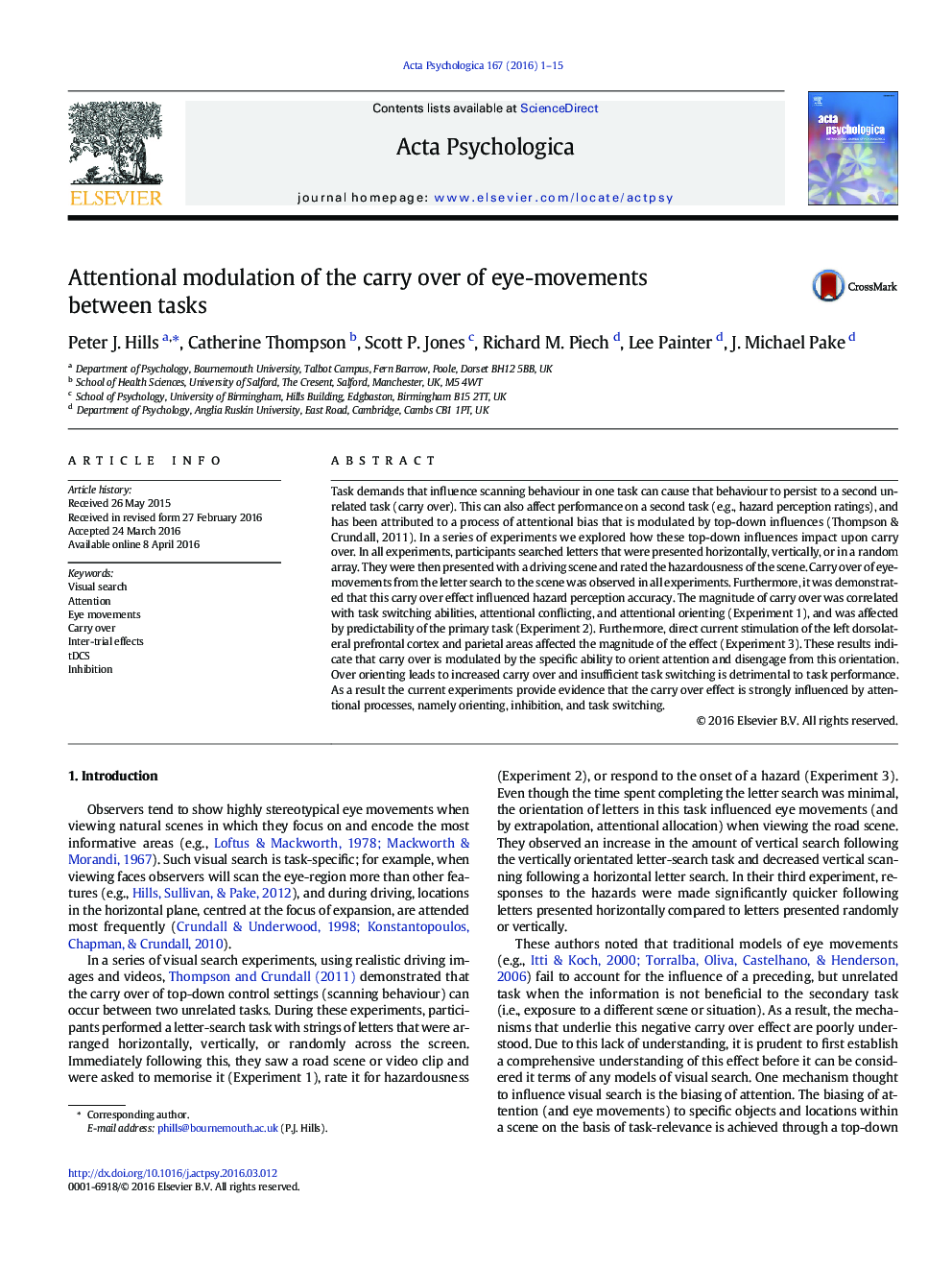| Article ID | Journal | Published Year | Pages | File Type |
|---|---|---|---|---|
| 919633 | Acta Psychologica | 2016 | 15 Pages |
•Eye movements carry over from one task to an unrelated task.•Carry over causes hazard perception accuracy deficits.•Carry over correlates with attentional orienting and conflicting.•Carry over is enhanced with anodal tDCS to the parietal cortex.•Carry over is reduced with anodal tDCS to the frontal lobe.
Task demands that influence scanning behaviour in one task can cause that behaviour to persist to a second unrelated task (carry over). This can also affect performance on a second task (e.g., hazard perception ratings), and has been attributed to a process of attentional bias that is modulated by top-down influences (Thompson & Crundall, 2011). In a series of experiments we explored how these top-down influences impact upon carry over. In all experiments, participants searched letters that were presented horizontally, vertically, or in a random array. They were then presented with a driving scene and rated the hazardousness of the scene. Carry over of eye-movements from the letter search to the scene was observed in all experiments. Furthermore, it was demonstrated that this carry over effect influenced hazard perception accuracy. The magnitude of carry over was correlated with task switching abilities, attentional conflicting, and attentional orienting (Experiment 1), and was affected by predictability of the primary task (Experiment 2). Furthermore, direct current stimulation of the left dorsolateral prefrontal cortex and parietal areas affected the magnitude of the effect (Experiment 3). These results indicate that carry over is modulated by the specific ability to orient attention and disengage from this orientation. Over orienting leads to increased carry over and insufficient task switching is detrimental to task performance. As a result the current experiments provide evidence that the carry over effect is strongly influenced by attentional processes, namely orienting, inhibition, and task switching.
